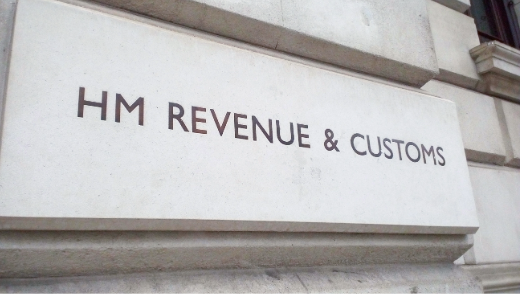The First Wealth Guide for Business Owners
The impulse to start a business can spring from anywhere. You might have a burning conviction that your idea will be a sensational success and be desperate to share it with the world. You may be fed up with taking orders and prefer to be your own boss. You may want to build something that’s your own for the long term. Or you may be moving into retirement and looking to keep something going on the side.
Maybe the plan is to grow a family business and pass it on to the next generation. Perhaps you’ve got an eye on scaling up the business to sell it and retire on the proceeds… or start up another one.
There are plenty of different motives for going it alone, and there are just as many benefits. Becoming your own boss can bring untold advantages to those with an urge to follow their ambitions. The potential for a better work-life balance, maybe more money, the freedom to act on your own ideas and instincts, or just a general sense of personal and professional satisfaction.
Of course, that’s not the only side of the entrepreneur’s story. If it was all upside down, then everyone would be doing it. It comes with risks and sacrifices too. Potentially less financial security, fewer holidays, fewer automatic perks and benefits that as an employee for a company you’ll have taken for granted. It’s a risk-reward balance that needs to be weighed up very carefully in every instance.
Becoming a business owner can be infinitely rewarding, but only if you go about every aspect of it the right way – from day one to the day you sell up, retire or move on to the next challenge.
This guide will tell you what you need to get right when you’re running a business, wherever you are in the company’s lifecycle.
Build a Business Plan
Every new business needs a realistic plan – one that can be as detailed as possible but always with the flexibility to be refined or adapted when it’s put to the test in the real world.
The plan will invariably be wrong from day one, as the business will naturally change and adjust, but sitting down and plotting out a short, medium, and long-term view of where the business will go is nonetheless hugely valuable and insightful. It sets a direction of travel, flags up potential problems, and establishes milestones against which you can measure your success.
It’s similar to the process we go through for individuals in their personal financial planning, but applied to a business. There’s some valuable guidance and more information on putting together a business plan on this Government website.
Select your Start-Up Support Network
Gathering the right people around you to contribute to your plan (and to travel along the path with you as long as you need them) is crucial. These aren’t your staff – these people are what we call your Money Team (for more details on this, First Wealth Co-Founder, Robert Caplan, recently spoke about the importance of having your Money Team around you).
Firstly, this means your family and friends, the people who know you and your personality, your strengths and weaknesses. Then it’s about pulling in the professionals you’re going to need to get the venture off the ground and keep it aloft. These are a great financial planner, an accountant and a lawyer to make sure that everything is set up and working correctly from the beginning.
You also need your Money Team to be proactive. They should challenge you when they disagree with your plans, cover the gaps in your knowledge and experience and make suggestions when they can add value or spot opportunities (and problems) that you haven’t noticed. It’s vital that they collaborate and have a good working relationship with each other. This is your network – your safety net and your springboard – so you need it to be tight and fully functioning.
Decide on Structure and Ownership
On setting up, you have a choice to make on how you want to structure your business. Are you a sole trader, or a partnership? A limited liability partnership (LLP) or a limited company? These decisions will have a bearing on the ownership of the business itself. A sole trader will own their business outright, but a limited company will have shareholders.
The benefits and suitability of the options available will depend on your business’s unique situation. It’s important to work through the decision with your Money Team to decide which suits your needs best.
Follow these links for more information on the alternatives and a step-by-step guide on each: sole trader; partnership; limited liability partnership; or limited company.
Find the Financing
It goes without saying that to launch a business you will need at least some initial funds behind the venture to get the ball rolling. Again, there are plenty of options available. You might have money of your own to invest or be using a business loan from a lender.
There are government grants and loans available for certain sectors or a range of investment options to pursue, from a capital contribution from friends and family members to piquing the interest of Angel Investors.
All Things Admin
It’s not the most glamorous part of being an entrepreneur, but making sure your admin and accounting procedures are fit for purpose from day one is going to save you a lot of unnecessary work and stress later down the line.
This means things like selecting the right bank account for your business, which depends on what you’re looking for it to provide, the services you’re seeking and the fees you’re willing to pay.
If you are planning to take on staff you’ll need to register as an employer with HMRC, and set up PAYE and payroll for your employees. If your business’ taxable turnover is likely to be greater than £85,000 you’ll be required to register it for VAT. A limited company must register to pay Corporation Tax.
Choosing the right software to run your payroll, accounting and invoicing systems also happens at this stage. Explore all the options, have a clear idea of your needs, and speak to your Money Team for recommendations and guidance.
Any employees you take on will need to have contracts, so you it’s important that you’re aware of what’s legally required of the employer in this situation. Basic templates can be found online but this is where advice from your solicitor will also be vital.
Don’t forget your tax and accounting deadlines. You will now have a business tax year as well as your own personal tax year. The deadline for your tax return is 12 months after the end of the accounting period it covers. Corporation Tax, however, is payable nine months and one day after the end of your accounting period. VAT tax returns are usually due quarterly. PAYE income tax is payable every month.
On top of this, you will have separate deadlines for invoice and expenses payments as part and parcel of the day-to-day running of the business.
Paying Yourself
After all that admin, you deserve a reward. As the business owner, you’ll need to decide how you’re going to pay yourself. The choice will be dependent on your unique business and tax circumstances, but the aim is to extract your money from the business in the most tax-efficient way possible.
It can be more efficient to take out dividends than pay yourself with a salary which is liable for PAYE income tax. However, many business owners choose to also pay themselves a minimum salary and make National Insurance (NI) contributions to ensure they receive their full NI benefits in future. This is an area where your accountant will be able to direct you with guidance specific to your situation.
Employment Decisions
Let’s start with what is the primary asset of any successful business: its people. Putting your team together and selecting the best individuals for the roles is an exciting part of defining your company. These are the people who are going to stand side by side with you as you strive for your ambitions.
Will they be employees on the payroll, or do you want the flexibility of freelancers? Maybe you’ll include a combination of both, depending on demand, or the proportions of each will change as the business develops and grows. The responsibilities of the employer are different towards freelancers in terms of things like NI contributions, workplace pensions and so on.
It’s worth noting that HMRC pay close attention to employment status. If someone meets the criteria to be an employee (there are HMRC tests online to ascertain this) then the employer doesn’t have a choice other than to have them on payroll. It’s not a viable option to have a team made up entirely of freelancers if they are effectively working full time for the business for the employer to save on the NI contributions. It’s an area you may wish to take advice on from an accountant or employment solicitor.
Self-employed contractors can provide the certainty and skills of a full-time employee but over a fixed term or on a project basis, sometimes making this option more appropriate. The government website lists a range of different types of employment status open to employers.
Insuring Yourself
You’re pouring your blood, sweat and tears into building a business that’s important to you. Like anything else you deem precious in life, you will want to ensure it properly.
You’re pouring your blood, sweat and tears into building a business that’s important to you. Like anything else you deem precious in life, you will want to ensure it properly.
Depending on the nature of your business and the sector you occupy, there can be many insurance options to consider. The Association of British Insurers website is a good place to start to help you work out what you’ll need.
Business insurance is a way to ensure not just the day-to-day running of the company, but also to provide vital protection to shareholders in the event that anything goes wrong. When we talk to business owners about insurance, there are three particular areas we flag up:
- Key person cover – This pretty much does what it says on the tin and provides insurance cover for the important people in the business. If, for example, your Sales Director is generating £1m of profit every year and they died or were indefinitely absent from work, in addition to the personal impact this would have, there would be a significant effect on the health of your business. Insuring her or him means that if they were to die the policy would pay out a lump sum that you can use to bring a replacement in at short notice, recruit another employee of the same calibre, or any other associated costs it incurs.
- Personal life cover – Taking out key person cover protects your business, but you’ll still need to take out a personal life insurance policy to cover you and your family in the event of your death. However, if you’re a business owner and you currently have a life insurance policy of your own, it may be appropriate to look at a new Relevant Life policy so the company owns the policy and pays your premiums as a benefit. In the event of your death, the proceeds would still be paid to the same beneficiaries but it’s a more tax-efficient option for the business because the premiums are tax-deductible. It’s a tax-efficient way to use funds while providing a future benefit for the owner or employees.
- Shareholder agreement – If a key shareholder dies or wants to leave a business, the existing shareholders will ordinarily want to ensure their shares remain within the company rather than be passed on or inherited by someone outside the organisation. Setting up a shareholder agreement allows you to establish in advance what would happen in these circumstances, and make sure it’s for the good of the business. It’s likely you will need some life cover to make sure there is sufficient cash available to purchase the shares on death. Your solicitor will be able to guide you through this process to ensure the right structure is in place.
Keep on Top of Cashflow
Being on top of your cash flow is vital. It’s the lifeblood of your business and if it’s not flowing with a regular pulse, you’ll have problems.
Being on top of your cashflow is vital. It’s the lifeblood of your business and if it’s not flowing with a regular pulse, you’ll have problems.
The most important thing you need to do is to put together a cashflow forecast. This estimates the cash you’ll have coming in and what will be going out. It makes an educated guess at when you when you’ll be paid by your customers and when you will need to make your payments to your own suppliers and service providers. It gives you a reading of the available cash you’ll have at hand in the business at any one time. A firm grip on your cashflow will allow you to keep your running costs – your operational expenditure – in check.
A word on tax. It’s vital that you understand exactly what taxes will be due and when. The specific taxes you will pay will depend on the set up and complexity of your business, but could include Corporation Tax, Income Tax, PAYE, National Insurance and VAT. Your accountant will be able to help you on the timing and the amount of tax due. It’s great practice to put money aside each month for the amount of tax you will need to pay in the future. Please don’t forget! We hear too many stories of good businesses tripped up by their inability to handle their historic or ongoing tax liabilities.
There are plenty of guides on how to put together your own cashflow forecast online, as well as tools to help you do it, but seeking guidance from your accountant is the most effective way to work this out.
Capital Expenditure – Your Growth Engine
As your business grows, you will need to start planning ahead and plotting a future direction. This could mean increasing your services, developing your offering, or extending your commercial footprint. This type of forward motion will need to be funded, and your capital expenditure – the money you’ll invest in your company to see benefits over time – will be the driver of this.
As your capital expenditure generally concerns bigger sums than your operational expenditure and will likely cover longer spans of time, planning it carefully is obviously crucial. It is entwined with the future complexion of your company – think of it as a statement of intent for your ambitions and growth.
The government’s Annual Investment Allowance (AIA) is currently very generous. It allows you to deduct the full value of an item that qualifies for AIA from your profits before tax and it has temporarily increased to £1 million. The government’s research and development (R&D) tax credits are also worth looking into if your business is working on innovative projects in science and technology.
Making Your Pension Work For You and Your Business
Establishing the right pension structure can have benefits for both the business owner and the business. Pensions can be a tax-efficient way of moving profits from the company balance sheet into a personal pension whilst reducing the business’s Corporation Tax bill. The opportunity for the business owner is that, rather than paying money directly to yourself (which is taxable) to then pay it back into a pension, for it instead to go straight to the pension pot as an employer contribution. Additionally, growth is tax-free within a pension, so there would be no Capital Gains Tax to pay.
An attractive option for entrepreneurs and small business owners is to set up a SSAS (Small Self-Administered Scheme) Pension – a tax-efficient option for limited companies. A major benefit of a SSAS pension is that it is flexible on where the scheme’s assets can be invested. A common example is property, where a SSAS is able to purchase the company’s trading premises and lease these back to the company. It also offers the opportunity in certain situations to lend money back to the company and purchase the company’s shares.
Max Your Tax Breaks
A final thought on tax breaks. In the first article, we talked about the importance of having your Money Team around you when you launch your business (including a good financial adviser, accountant and lawyer) and how a proactive approach from them can add huge value to your business.
A good example of this is in identifying tax reliefs and incentives that are available to your company. You can find a list of Corporation Tax reliefs and allowances on the government’s website but, again, the guidance of a proactive accountant and/or business adviser who’s fighting your corner will be the best way to make these benefits work for your business.
Exiting Your Business
Did you launch your business with a clear idea of what you wanted to get out of it? Or did this develop over time? Perhaps you’re not even sure now – which would not be uncommon. There are any number of potential ways that you could exit your business, depending on your own circumstances and ambitions.
What’s universal when you come to sell your business is the need to make sure your exit plans align with and complement the financial plans you have in place. These things are intertwined – they don’t exist separately. One will help fund, inspire or direct the other.
If you have sat down with your financial adviser and set out your lifestyle plan, you’ll have a good idea of where you are, where you’re going, and all the life goals and ambitions you want to tick off along the way. These are individual to you. So your next step is to work out where and how the sale or transfer of your business fits into this.
For example, you might be a serial entrepreneur with an aim to build and sell numerous businesses over your career, and the sale of this one will help you to set up the next one. You might want to use the proceeds of the sale to establish yourself up as an angel investor, mentoring young entrepreneurs with your experience and giving them the financial boost they need early on in their own careers.
Maybe you’ve just had your fill of being your own boss, with a plan to tuck away the money you make from the sale as a future nest egg and return to a ‘normal’ job. You might feel like taking a career break and travelling the world or working for a charitable cause. Or passing on the business to your family, marking the end of your working life for good, and paving the path to a comfortable retirement.
Knowing Your Number
All of these scenarios, if you’ve planned correctly, will be a part of your lifestyle financial planning. This will have helped you to establish your ideal lifestyle, what it looks like to you personally, what you need to do to get there, and how much you will need to sustain it without fear of ever running out of money.
A crucial part of your financial planning is working out what this amount is. We call this knowing your number. The concept is based on a book by Lee Eisenberg, ‘The Number: What Do You Need for the Rest of Your Life, and What Will It Cost?’, which pretty much does what it says on the tin. In short, working out this number is liberating and empowering because it gives you a clear focus on your defined goal. Selling or transferring your business can be a powerful propeller towards this if you approach it correctly.
Keeping a Constant Sale Mindset
If you’re preparing to sell your business, you’ll naturally be keen to market it in the most attractive way possible to potential buyers and leverage everything you have to command a favourable sale price. Experts suggest that a successful sale is years in the planning, and some even say the prospect of a sale should always be present in a business owner’s mind.
In his book, ‘Built To Sell’, John Warrilow says business owners should run a company as if it will last forever, yet also strive to constantly maximize its value, building in the qualities that allow it to be sold at any moment for the highest price possible. He says that the biggest error business owners make is to build a business that relies too heavily on them, but that smart business people build a company to be sold even if they have no intention of selling or stepping back anytime soon. This means the business will always be a valuable, sellable asset.
Choosing your Exit
Exiting your business can happen in a number of ways, in terms of different types of sale options and also the decision to implement a succession plan if you’re passing on the business to a family or third party.
If you’re looking to sell, you’ll want to consider the best option for you, bearing in mind your life goals and where you are on your journey. This could be a straight sale or a merger with another business of a similar or complementary profile. Depending on the nature of the sale/merger and what you want to achieve, it could mean continued or flexible involvement in the company for you or a completely clean break.
As a condition of some sales, it can be common for the owner to remain within the business for two-to-three years to ensure that profit and growth forecasts are met – if they are not, this could reduce the sale price. However, owners who are selling up to retire need to factor this into their planning if they were hoping to sail off into the sunset the day the deal was done, as it might not be as simple and immediate as that.
A management buy-out gives the current staff the opportunity to buy into the business and take over the role of owner-manager from you. This can be a good way to ensure that the business is left in safe and experienced hands. If you’re not the sole proprietor of the business, you also have the option to sell your stake to another partner or investor.
Listing your business on the stock exchange via an IPO (initial public offering) is a way of selling your business to the public. The conditions need to be right and your business prospects robust and rosy, but in the right circumstances, this can be a potentially highly lucrative option.
If you make a capital gain when you sell your business (from the proceeds of the sale or any assets from the business that you keep) you will need to pay Capital Gains Tax (CGT). However, it could be possible to reduce the amount of CGT by claiming Entrepreneurs’ Relief or making use of other tax reliefs.
There are also administrative considerations to take into account regarding your obligations to staff and HMRC. There’s more information available on this Government website, and we can help advise on the finer details, alongside your legal advisers.
Making a Success of Succession
Instead of selling up, handing the business on to your family is a route that many business owners pursue. In this case, a succession plan is vital. Again, it can be a satisfying way to ensure that the business is cared for and progressed according to your wishes, but any decisions must be made with the same rigour and unsentimental logic that has made the business a success so far. The long-term survival of a business depends on a strong succession plan, which can drive growth, reduce the tax burden and prepare you, the individual, for the next stage of your journey.
As with many things in life, the earlier you start planning, the better the opportunities you’ll create for yourself. I can’t stress enough the importance of having your Money Team around you (including a good financial adviser, accountant and lawyer) when you’re making your plans and decisions about your business and how they articulate with your future financial lifestyle.
Launching and managing a business can be all-consuming, so it’s important to remember not to let the pursuit of business success be at the expense of your financial planning or other life goals. If you’d like some advice and guidance with this, please drop us a line, we’d be more than happy to help.
This document is marketing material for a retail audience and does not constitute advice or recommendations. Past performance is not a guide to future performance and may not be repeated. The value of investments and the income from them may go down as well as up and investors may not get back the amount originally invested.
Let's Talk
Book a FREE 30-minute Teams call and we’ll answer your questions. No strings attached.
Check Availability



